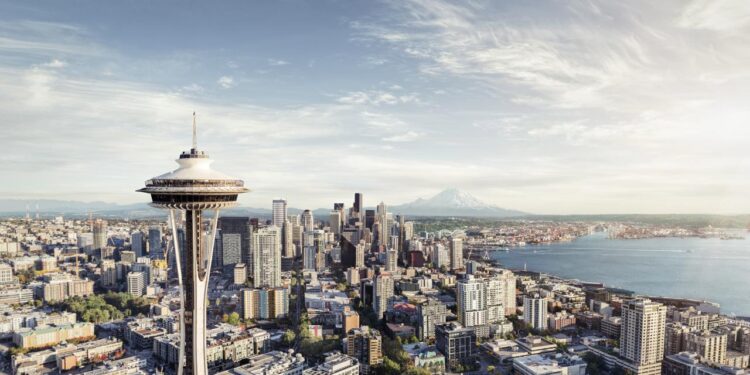Seattle has become America’s most paradoxical success story, where extreme wealth concentration exists alongside persistent street homelessness, creating an urban inequality crisis that challenges traditional notions of civic prosperity.
The city’s 750,000 residents include an estimated 54,200 millionaires, roughly one in every 14 people, along with 130 centimillionaires worth over $100 million and 12 billionaires. This wealth density rivals Monaco whilst homelessness reaches record levels, with King County’s latest count identifying over 16,800 people experiencing housing insecurity.
The millionaire population has surged 72 per cent since 2013, driven primarily by stock options from Amazon, Microsoft, and successful technology startups. Seattle now ranks seventh nationally for total millionaires but second for “millionaire density,” trailing only the Bay Area in concentration of seven-figure households.
“We have a nice house but not that special, I drive a Tesla, we take a pleasant vacation every year,” one Microsoft millionaire told local media, describing how substantial wealth has become unremarkable. “So yes, we do blend in.” This normalisation of affluence occurs whilst median rent has nearly doubled within a decade.
Mayor Bruce Harrell’s administration cites recent progress, including a 34 per cent reduction in tent counts during early 2024, increased shelter referrals, and new housing units entering the market. The Unified Care Team has removed over one million pounds of debris from encampments whilst connecting residents to services.
However, the scale of need continues expanding. The 2024 homeless count showed a 23 per cent increase from 2022, with nearly 10,000 people living unsheltered in tents, recreational vehicles, or directly on streets.
“The effects of massive wealth inequality are alive and well in Seattle,” said Councilmember Tammy Morales. “While the number of millionaires in our city grew 72% in the last decade, the cost of rent has just about doubled.”
Crime statistics add complexity to the prosperity narrative. Seattle ranked fourth nationally for total crime rate in 2024, registering 172 per cent above the national average, though recent data indicates encouraging decreases in violent crime and vehicle theft.
The city’s ultra-wealthy roster reads like a technology industry hall of fame: Steve Ballmer ($118 billion), Bill Gates ($108 billion), and MacKenzie Scott, who has donated over $14 billion from her Amazon divorce settlement. These fortunes originated locally, in Capitol Hill coffee shops and Bellevue garages, but their success created economic gravitational effects that transformed Seattle’s entire housing ecosystem.
The wealth creation engine drove housing costs skyward whilst pricing out service workers. The city that once celebrated accessible music venues and affordable living became a market where $1 million homes represent modest purchases.
Seattle’s inequality challenge mirrors conditions in San Francisco and New York, but few cities embody the contradiction as starkly. The Space Needle overlooks both penthouse developments and tent encampments, creating visual metaphors for America’s widening prosperity gap.
The fundamental question transcends whether Seattle qualifies as wealthy, the data confirms extraordinary affluence. Rather, the challenge involves determining whether cities can function successfully when prosperity becomes this concentrated, and whether local government possesses sufficient tools to bridge such dramatic economic divisions.
“We became everything we said we’d never become, a city where you need tech money just to survive,” reflected one longtime resident.
Available data suggests Seattle’s wealth generation shows no signs of slowing. Whether the city can develop equally powerful mechanisms for economic equity remains the defining urban policy challenge of this generation.






